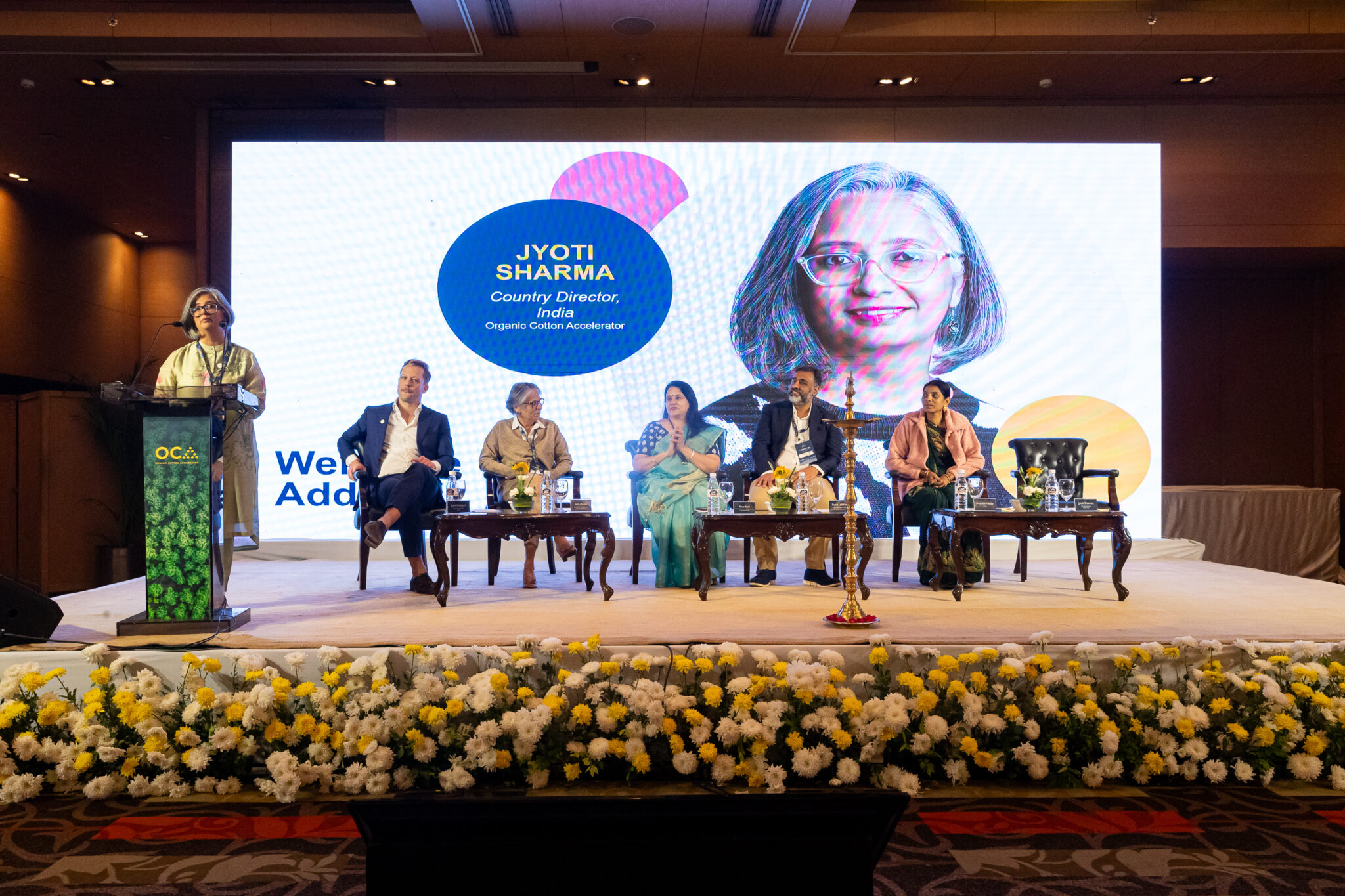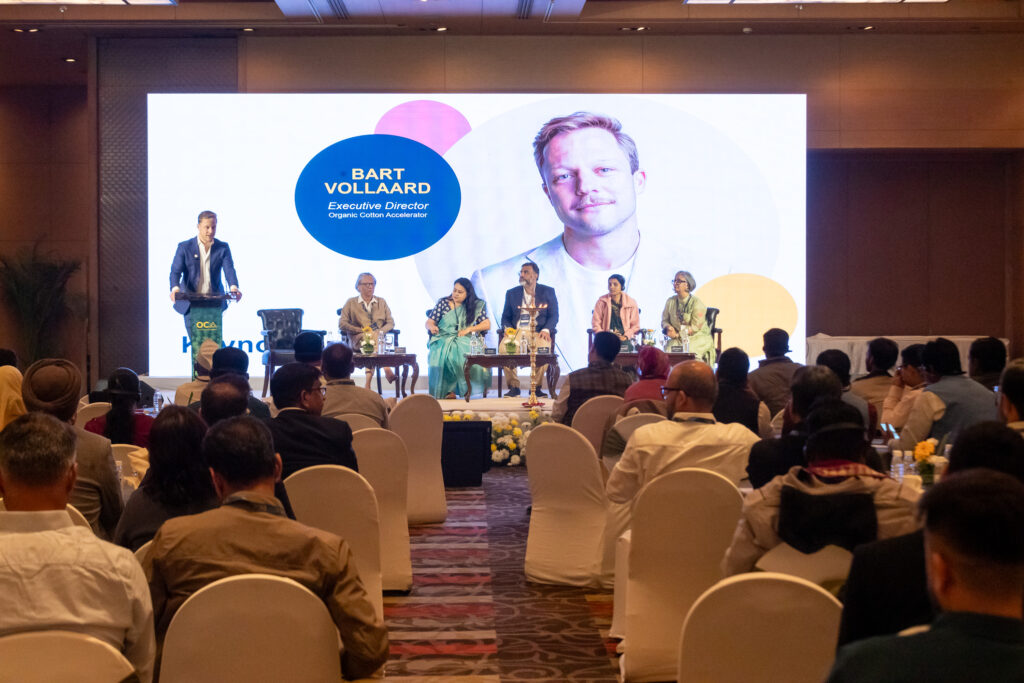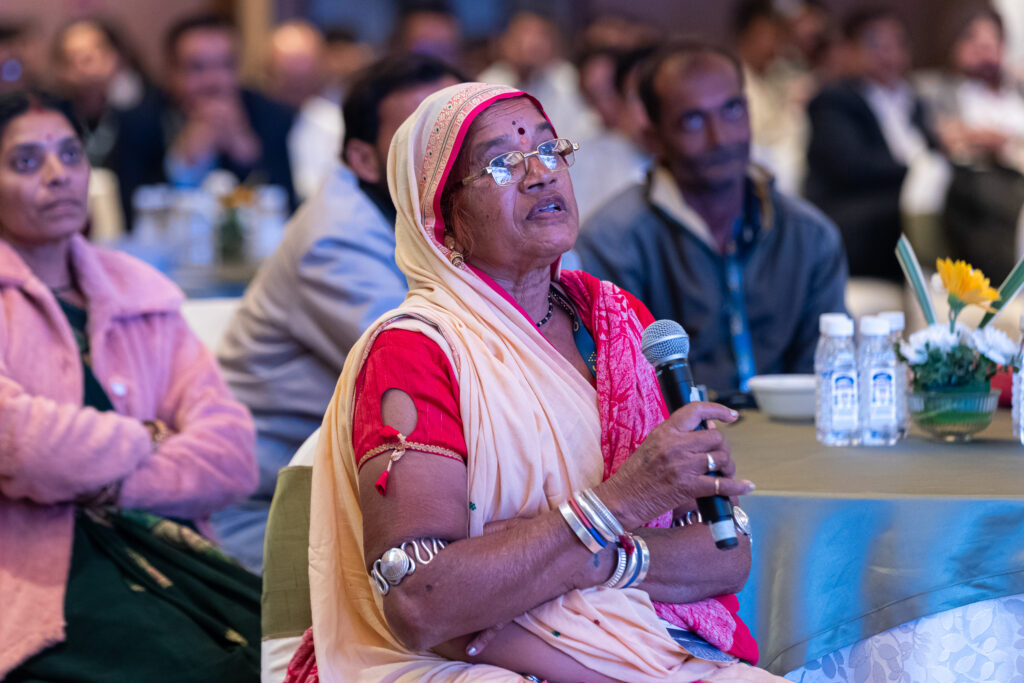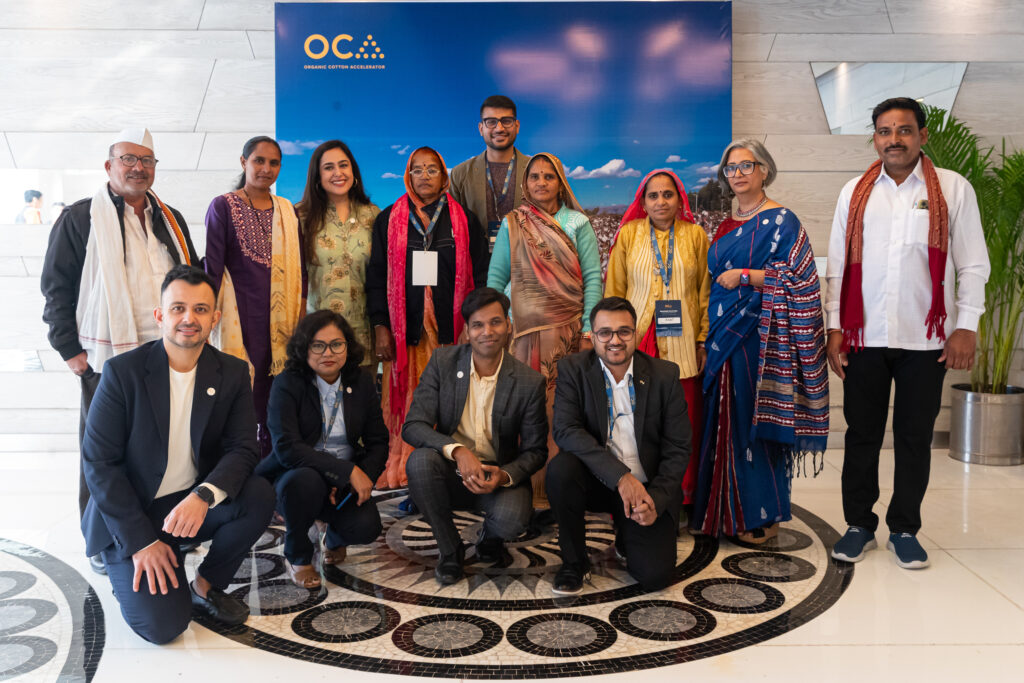The recent OCA Stakeholder Event India 2024: Scaling Organic Cotton in India brought together farmers, brands, suppliers, manufacturers, non-profit organisations and public sector representatives, to foster collaboration and accelerate sustainable growth across the organic cotton value chain. Over two days, attendees explored India’s leadership in organic cotton production and OCA’s efforts to support farming communities. From fair labour conditions and innovative tech to sustainability in textiles, the event was packed with inspiring ideas. Over ten exhibitors showcased their initiatives and products at a marketplace, generating networking and business development opportunities.
“OCA’s commitment to an inclusive ecosystem shone through in every detail of this two-day event, As OCA brought together a wide array of stakeholders, the event represented not just its commitment to accelerate organic and regenerative cotton but also to strengthen connections within the supply chain and beyond,” said Anita Chester, Managing Director of Laudes India and OCA Board Member
Farmers and nature: the backbone of organic farming
The event opened with a keynote address that celebrated the vital roles of farmers and nature. OCA’s vision for a sustainable and economically viable future was also made clear. Reminding attendees of the importance of creating synergies, Jyoti Sharma, Country Director, OCA India said: “Collaboration across all sectors—whether it be government, industry, or non-profits—is essential for addressing the complex challenges we face and ensuring a future where organic cotton continues to thrive, benefiting farmers, consumers, and the planet.”
Anita Chester shared her optimism abut India’s potential in sustainable fashion, saying, “India holds great potential for a circular and sustainable fashion economy.” Discussions touched on the challenges of transitioning to organic farming andh how solutions like blockchain, can strengthen traceability, productivity, and transparency in the supply chain.
Punit Lalbhai, Vice Chairman at Arvind and OCA Board Member added a fresh perspective on how the industry can shift perceptions of organic cotton. “Industry needs to position organic cotton differently and associate it not only with green consumption, but also with growing yields, farmer prosperity, biodiversity and climate change adaptation.”
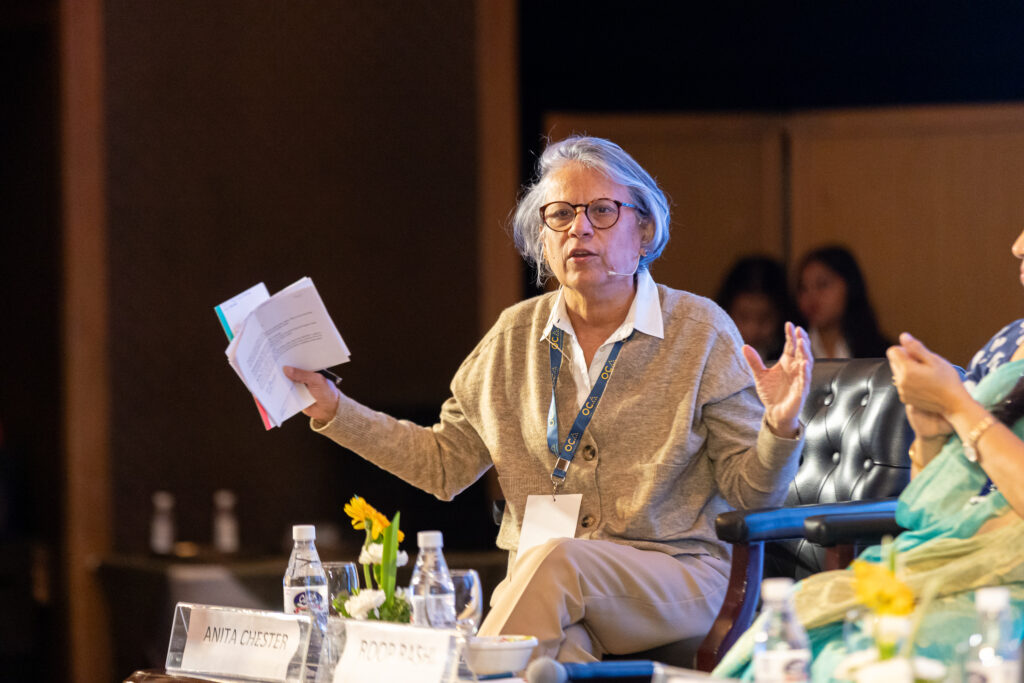
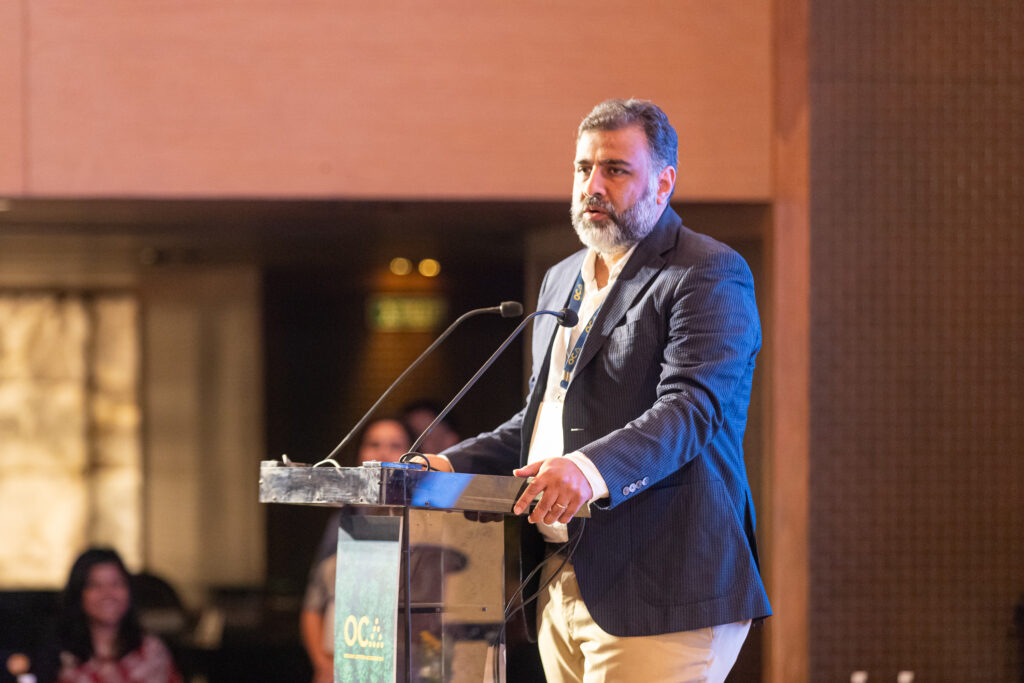
Farmers leading the way
The farmer panel was a standout moment, celebrating the balance between traditional agricultural wisdom and modern farming techniques.
“Farmers are not just cultivators of crops but also stewards of the land, with knowledge that has been passed down through generations,” said Ajit Kelkar, Founder Director of Abhinab AHRDO.
Farmers discussed using biochar to boost soil fertility and sequester carbon. They explored drought-resistant organic cotton varieties and the profitability of non-irrigated farming. Women farmers were especially celebrated for their roles in improving quality control and biodiversity, showcasing the social and economic benefits of organic farming.
Building a sustainable textiles industry
Sustainability in textiles took centre stage in a panel featuring government and corporate leaders. Roop Rashi, Textile Commissioner for the Government of India, emphasised the need for practical solutions: “Sustainability should reflect on the balance sheet; it must make business sense for all stakeholders.”
The dialogue also underscored transparency and collaboration as crucial for progress. Financial viability, government incentives, and advanced recycling technologies were identified as essential tools for building a circular textile ecosystem.
Scaling organic cotton
Expanding successful organic practices beyond cotton to other crops was a recurring theme. Discussions also touched on spinners’ crucial role in the supply chain, regulatory challenges, and pricing strategies to improve farmers’ livelihoods.
Faiz Ahmad Kidwai, Additional Secretary, Ministry of Agriculture and Farmers Welfare with the Government of India celebrated India’s leadership in organic cotton production stating:
“We are proud that we are the largest producers of organic cotton in the world today and that is largely because of the OCA programme.” He expressed the government’s support for OCA’s initiatives with organic farmers in India.
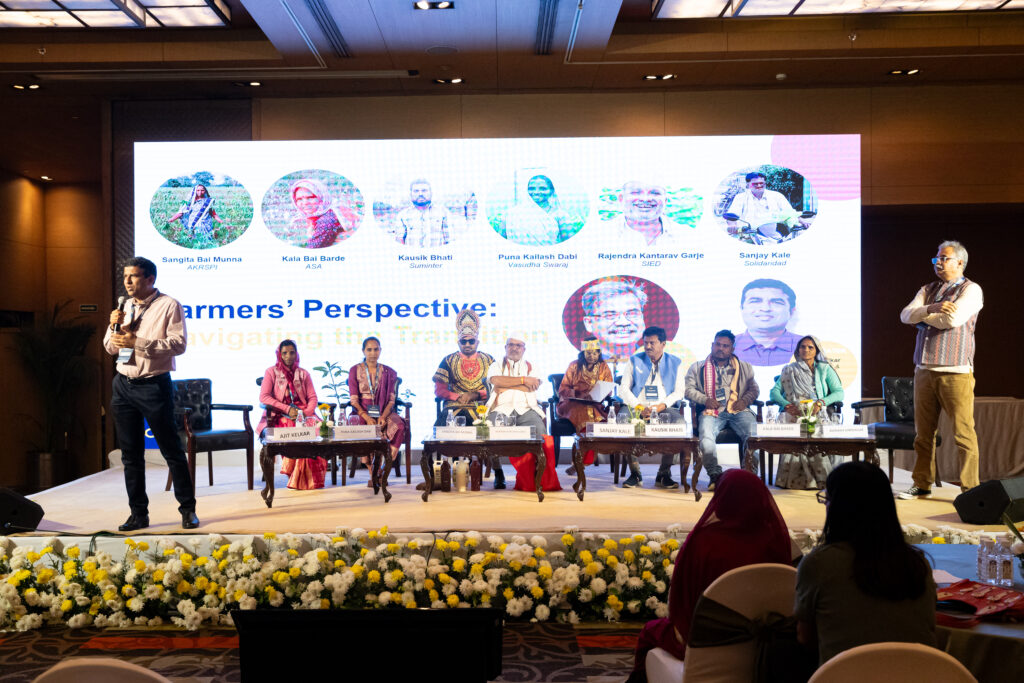
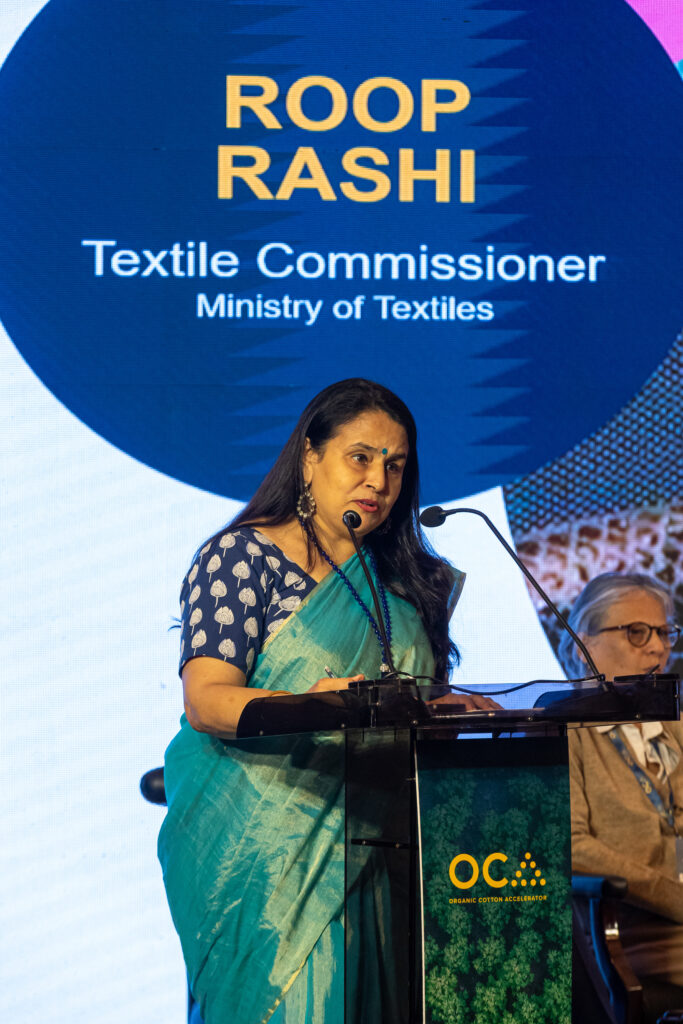
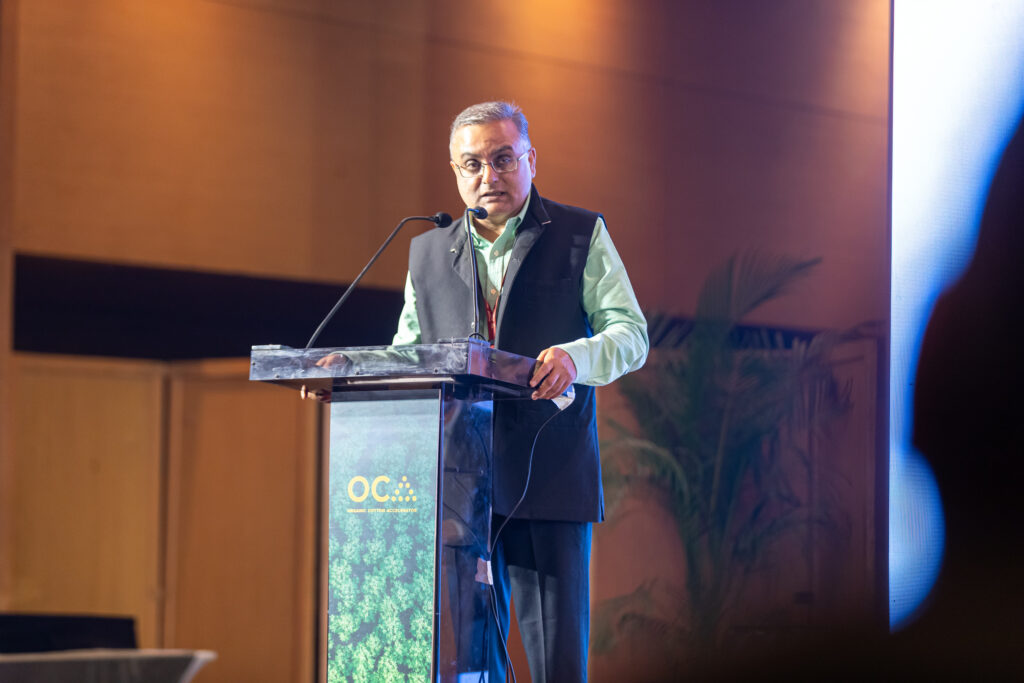
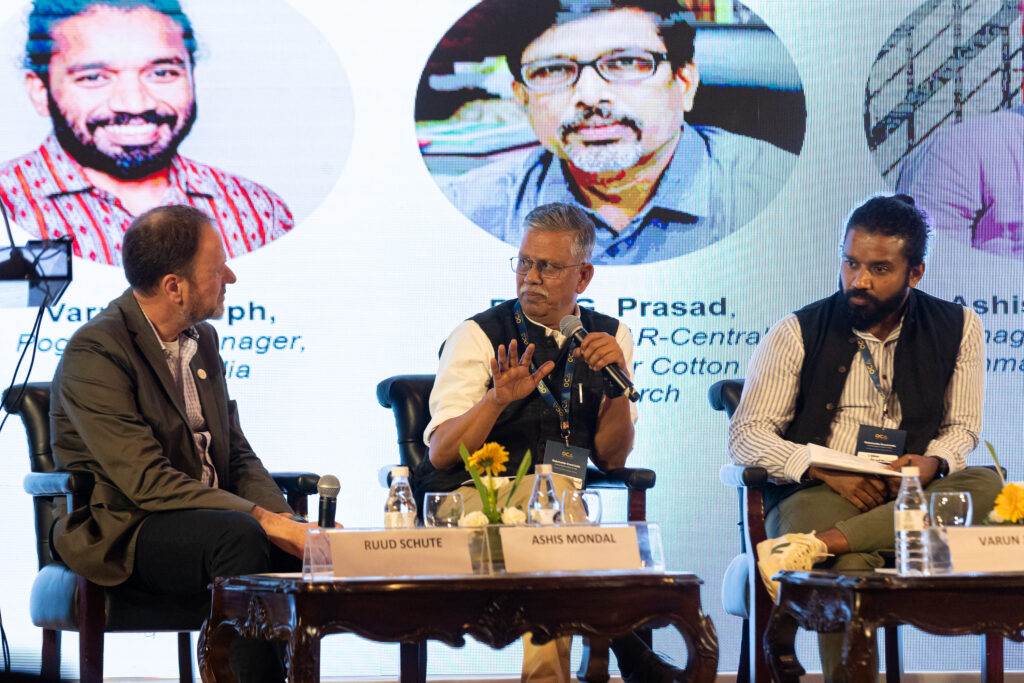
Championing decent work
A fireside chat on decent work brought together experts to address the social aspects of cotton production. Bansari Nag, National Project Coordinator at the International Labour Organisation explained: “For us, decent work encompasses productive employment, social protection, adherence to the fundamental principles and rights at work, and finally social justice.” Possible solutions included labour monitoring systems, grievance mechanisms, and supporting farmers’ mental health through partnerships with relevant organisations. These steps would aim to foster a fairer, more equitable cotton industry for all workers.
Organic cotton and climate challenges
How can organic cotton adapt to the growing impacts of climate change? This was the focus of a panel that explored strategies for making organic cotton production more resilient to climate change. From carbon insetting to financial incentives, the session emphasised the sector’s potential.
“Organic cotton can be an engine of prosperity for rural landscapes and agricultural communities and there’s an opportunity to show the world and new model of agriculture,” said Ashish Mondal, Managing Director at Ploughman Agro.
The panel urged stakeholders to collaborate on implementing sustainable practices and creating equitable frameworks for carbon credits and climate resilience.
Building a sustainable textile value chain
This sustainable business model relies on factory compliance with standards, building a value chain from farm to fashion.
“This business model, along with its associated compliances, elevates factory operations to a whole new level. The workers emerge as the primary beneficiaries of these standards,” says Narayanasamy Arunachalam, Vice President at Armstrong Spinning Mills.
The evolving cotton market
The event also explored the complexities of pricing, certification, and sustainability. Traceability was a key focus, with Manju Kumari from Kappahl stating, “Traceability is crucial, with goals to trace the entire supply chain to the farm level.”
Panellists emphasised India’s position as a major cotton producer and discussed innovations like blockchain-based traceability apps. They called for aligning sustainability with business goals, improving certification systems, and fostering better trade relations to boost the cotton industry’s global standing.
Enhancing seed production
A seed panel delved into the challenges of producing non-GMO cotton seeds, from contamination issues to the lack of diverse cultivars. Collaboration, research, and region-specific solutions were highlighted as critical for sustainable agriculture.
“Progress over perfection. We always find a way as we move forward,” said Vivek Rawal, Managing Director of Remei India.
A rallying call
The OCA Stakeholder Event concluded with actionable steps for every segment of the organic cotton value chain. Whether through better labour practices, technological advancements, or farmer-centric solutions, the message was clear: collaboration and innovation are key to scaling organic cotton in India.
As Bart Vollaard, OCA’s Executive Director so aptly put it, “Farmers and nature are the foundation of the cotton industry.” With this foundation, the future of sustainable cotton looks bright.
